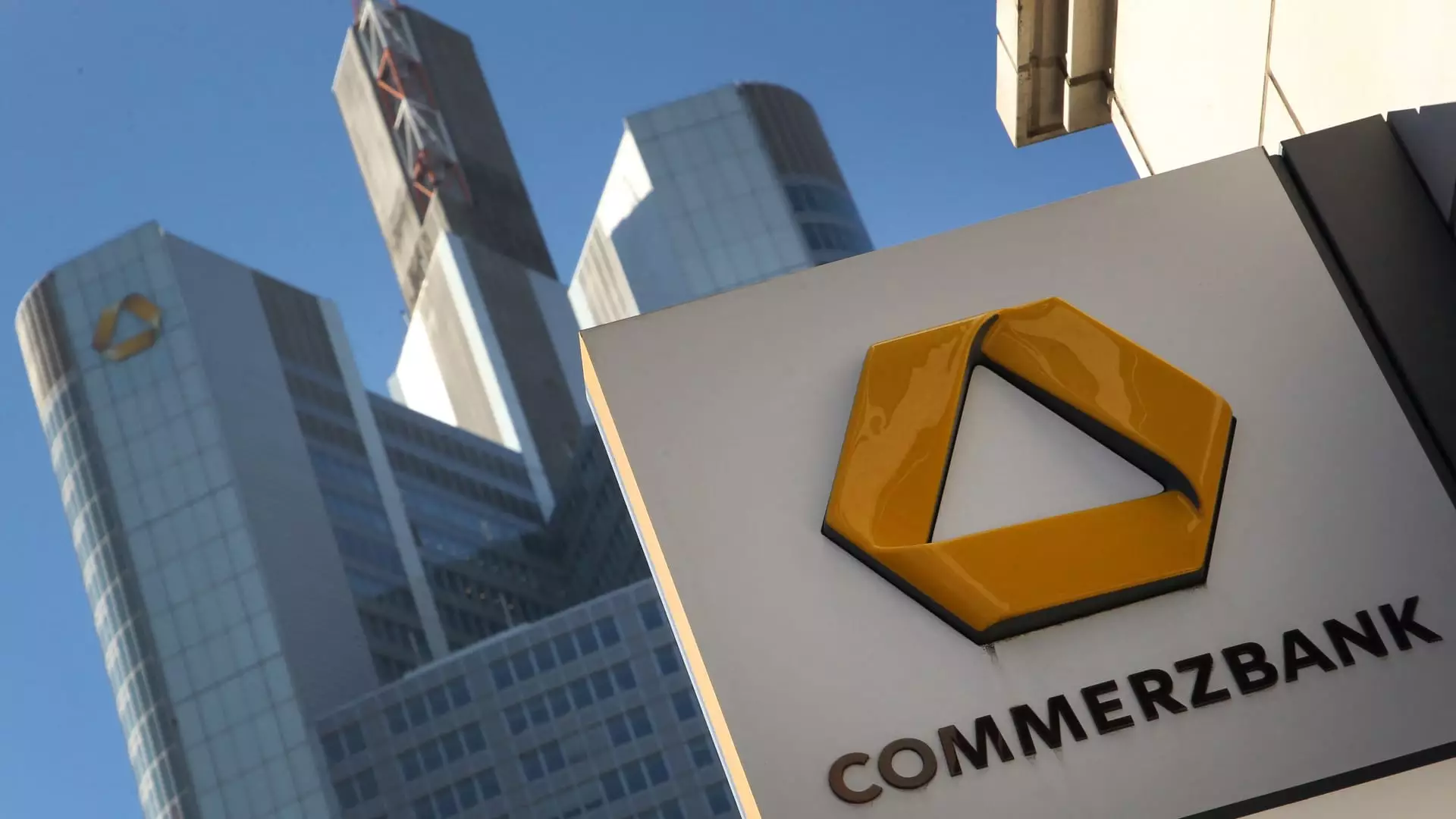Commerzbank, Germany’s second-largest lender, has revealed a bold plan that entails the elimination of 3,900 full-time positions by the year 2028. While this announcement signifies a substantial reduction in workforce primarily within Germany, the bank simultaneously sets forth new strategic objectives intended to bolster its long-term growth. The intended job cuts raise fundamental questions regarding the future workforce landscape of the bank and the labor market dynamics within the German banking sector.
The bank’s CEO, Bettina Orlopp, highlighted a commitment to executing these layoffs “in a very social, responsible way.” This assertion aims to alleviate concerns surrounding employee morale during a period characterized by corporate restructuring. However, the real challenge lies in balancing the pressing need for operational efficiency with maintaining the well-being of remaining employees.
In a bid to navigate through the cost-cutting phase, Commerzbank anticipates incurring around 700 million euros in before-tax restructuring costs by 2025. These figures are indicative of the financial strain involved in overhauling operational frameworks. Nevertheless, the bank targets a net profit of 2.4 billion euros in 2025, aiming for a payout ratio exceeding 100% throughout 2025-2028, post restructuring costs and Additional Tier 1 bond coupons. This reveals a dual approach—reducing costs while simultaneously uplifting shareholder value.
Moreover, the bank has revised its revenue expectations upwards, setting a goal of 3.8 billion euros for 2027, a slight increase from its previous forecast. This upward revision not only reflects confidence in its strategic direction but also indicates a competitive resurgence in a challenging landscape. Notably, the targeted return on tangible equity has climbed from 12.3% to 13.6%, an ambitious goal reflecting a renewed focus on profitability.
Commerzbank’s Record Performance and Resilience
In a noteworthy display of financial strength, Commerzbank recently disclosed its “record” annual performance, with net profits for 2024 soaring 20% to 2.68 billion euros. This performance surpassed market expectations, sparking discussions on capital return and share repurchases. The bank plans to repurchase shares worth 400 million euros and boost its dividend payout, indicating a robust recovery and investor confidence.
CEO Orlopp underlines a crucial point in her communication—Commerzbank has consistently delivered on its promises over the past four years, upholding expectations amidst adversity. This track record of reliability provides a strong foundation upon which the bank intends to build its future initiatives. However, the sustainability of this performance remains conditional upon effective execution of its strategic plan amid ongoing market volatility.
The banking sector has been undergoing significant transformations, with Commerzbank actively pursuing its path amid potential consolidation threats. Notably, Italian lender UniCredit holds a notable stake in Commerzbank, raising speculation about possible cross-border takeover discussions. German Finance Minister Jörg Kukies has publicly opposed such consolidations, exemplifying the complexities of navigating shareholder interests versus national economic stability.
In light of these tensions, Orlopp acknowledges the necessity of open dialogue with UniCredit, categorizing them as an investor while hinting at the possibility of deeper discussions regarding structural operations. Her comments imply that further clarity from UniCredit on their strategic intentions is crucial for Commerzbank to consider any potential collaborations or structural changes.
As Commerzbank embarks on this significant restructuring journey, the emphasis on responsible job cuts and strategic growth signals a pivotal moment for the institution. Balancing the necessity for reduction in workforce with the imperative to keep employee morale intact poses a complex challenge.
The ambitious revenue targets and commitment to enhancing shareholder returns suggest that Commerzbank is striving for competitive resilience in an unpredictable economic landscape. Nevertheless, the interplay of market conditions, investor sentiments, and corporate restructuring will ultimately determine the trajectory of the bank’s success.
Commerzbank’s current strategic shift encapsulates the dynamic nature of the banking industry, where adaptability and foresight are crucial. The upcoming years will be critical in defining Commerzbank’s stance as a robust player in the financial markets, navigating through internal transformations and external pressures alike.

